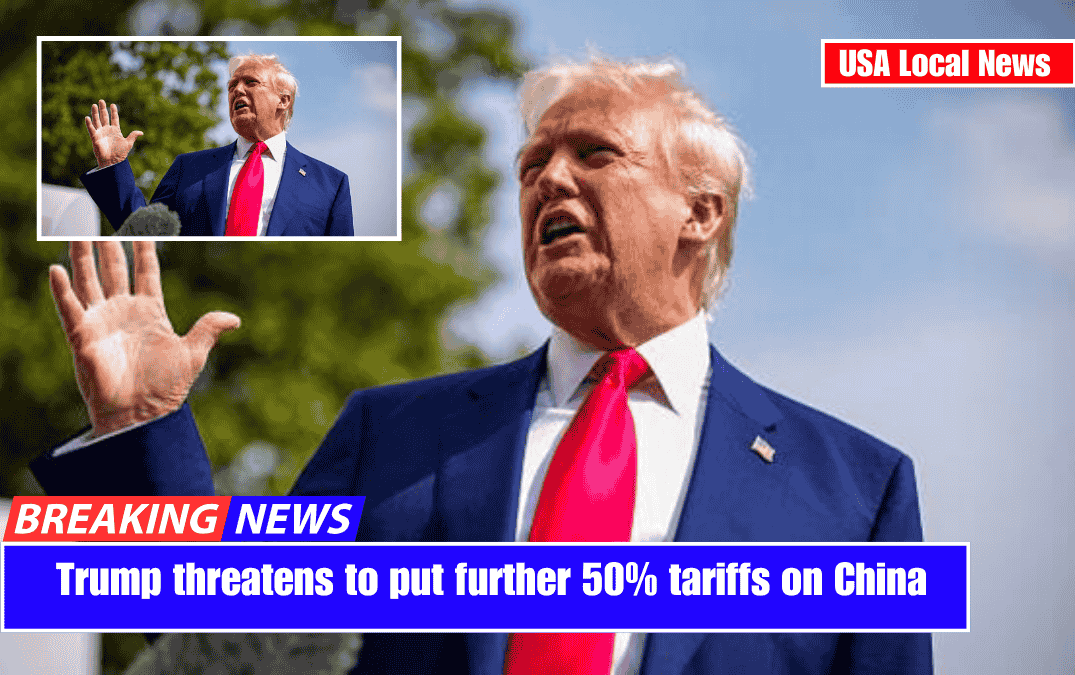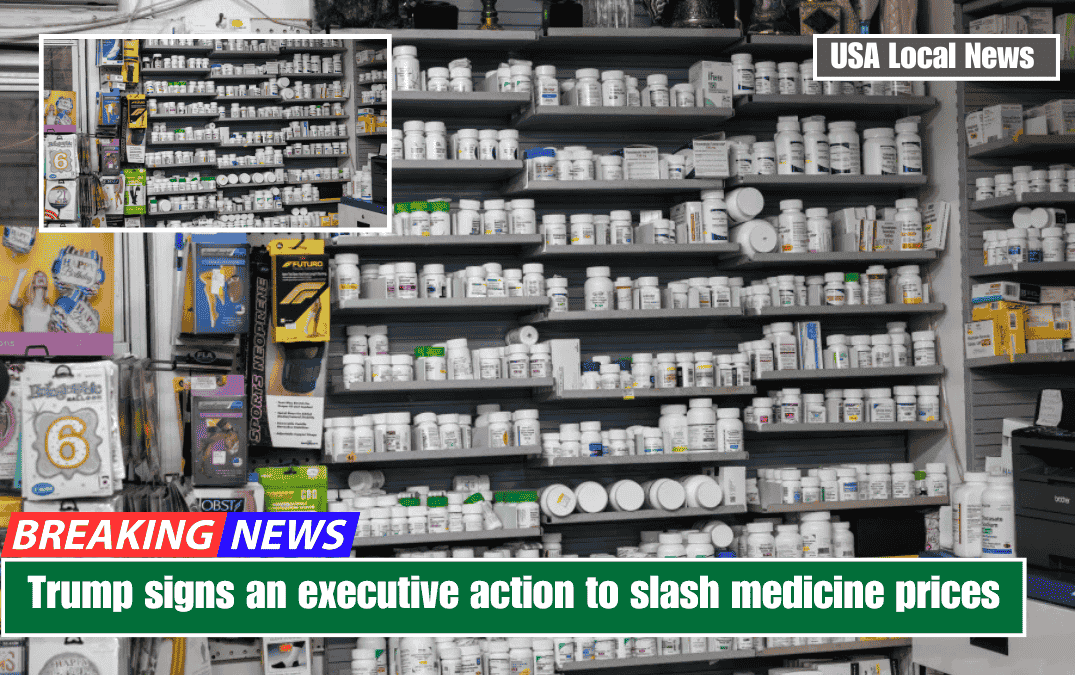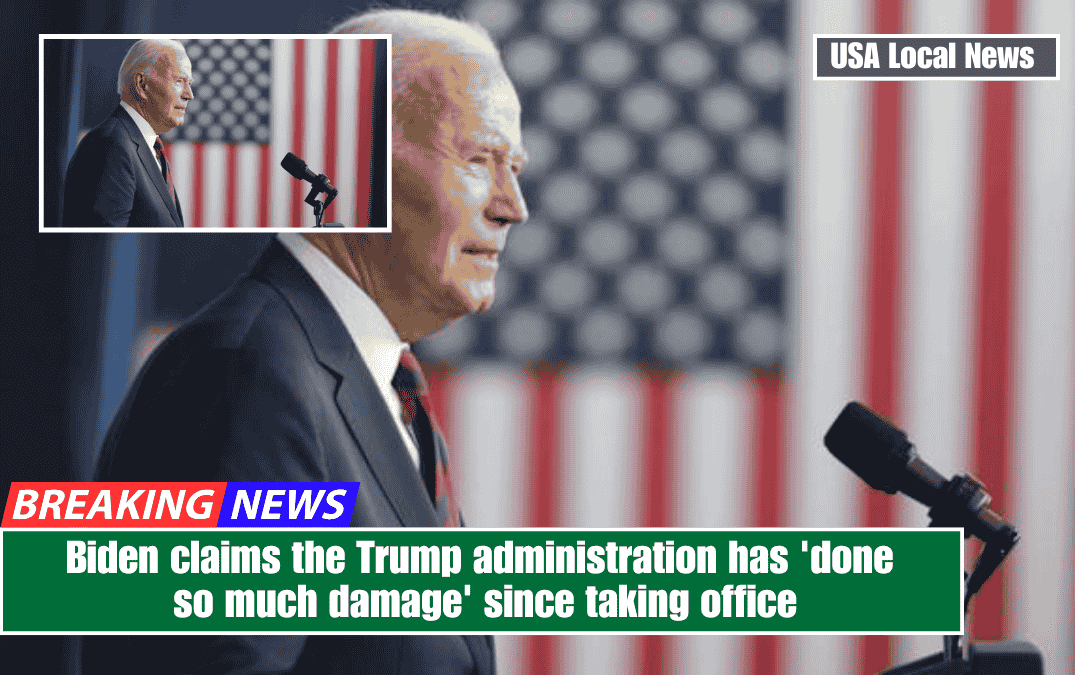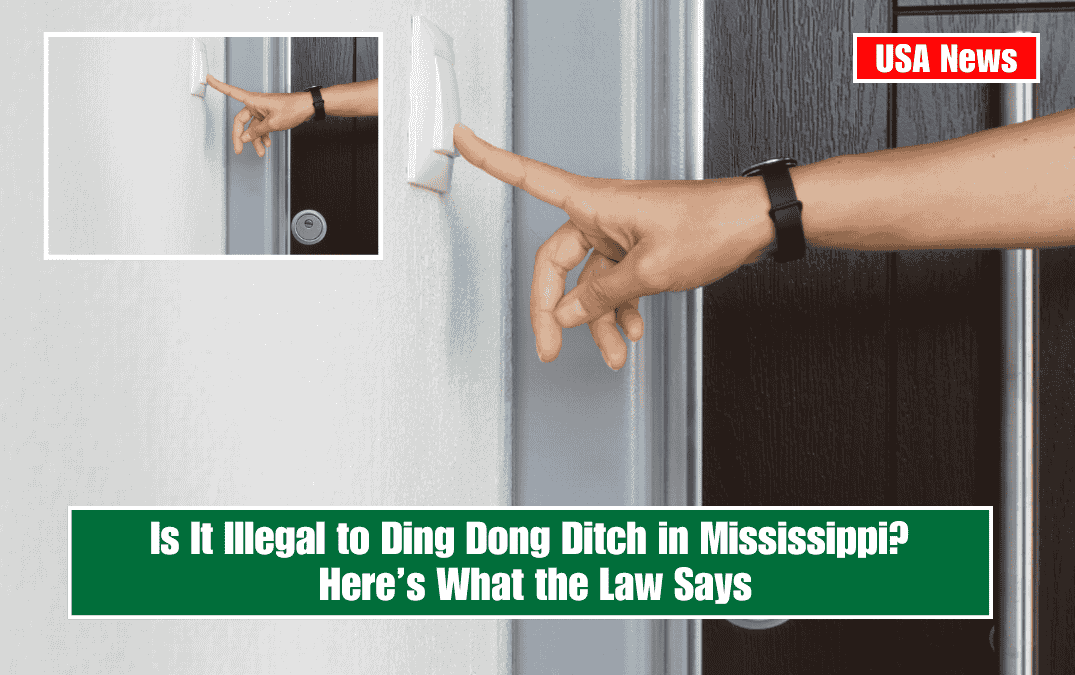President Trump announced on Monday that the United States will impose an additional 50% tariff on Chinese imports if the Asian country does not withdraw its plan to impose a retaliatory 34% import fee on American products.
In a post to his app, Truth Social, Mr. Trump stated: “any country that Retaliates against the U.S. by issuing additional Tariffs, above and beyond their already existing long term Tariff abuse of our Nation, will be immediately met with new and substantially higher Tariffs, over and above those initially set.”
He went on: “Therefore, if China does not withdraw its 34% increase above their already long term trading abuses by tomorrow, April 8th, 2025, the United States will impose ADDITIONAL Tariffs on China of 50%, effective April 9th.”
On April 2, Mr. Trump announced “reciprocal tariffs” on imports from approximately 90 countries, in addition to a 10% global tax on all products shipped to the United States.
The president described the announcement as “Liberation Day,” saying the new taxes are necessary to eliminate trade imbalances between the United States and other countries, ranging from China to European Union members.
In response to Mr. Trump’s imposition of a 34% tariff on Chinese imports, which is scheduled to take effect on April 9, Beijing announced last week that it would impose a 34% tariff on all U.S. imports beginning April 10.
If Mr. Trump follows through on his plans, U.S. tariffs on Chinese imports would total 104%. The new taxes would be in addition to the 20% tariffs aimed at encouraging China to crack down on fentanyl trafficking, as well as the separate 34% tariffs announced last week.
According to data from the US Trade Representative, the United States imported approximately $439 billion in goods from China last year, ranging from Apple iPhones to clothing.
Excluding the threat of an additional 50% levy on Chinese imports, American consumers could face an annual cost increase of about $3,789 as a result of the previously announced tariffs, according to the Yale Budget Lab.
Consumers generally bear the brunt of tariffs because importers, such as Walmart, which are required to pay import duties when accepting shipments from other countries, typically seek to spread the cost through higher import prices. Because of these dynamics, many economists believe inflation will resume this year.
Mr. Trump’s escalating trade war has spooked Wall Street, with economists warning that it could stifle economic growth and even spark a recession.
In his social media post threatening to impose new tariffs on China, Mr. Trump stated that he intends to begin negotiations with other countries “immediately.”
In a separate Truth Social post on Monday, Mr. Trump stated that he spoke with Japanese Prime Minister Shigeru Ishiba to begin trade negotiations. He was upset because “they have treated the U.S. very poorly on Trade” because “they do not take our cars, but we take MILLIONS of theirs.”
White House trade adviser Peter Navarro suggested that in order to reach agreements, countries would need to make structural changes to their tax and regulatory codes, rather than simply lower their own tariff rates.
“Let us take Vietnam,” he said on CNBC. “When they come to us and say, ‘We will go to zero tariffs,’ that means nothing to us because it is the non-tariff cheating that matters.”















